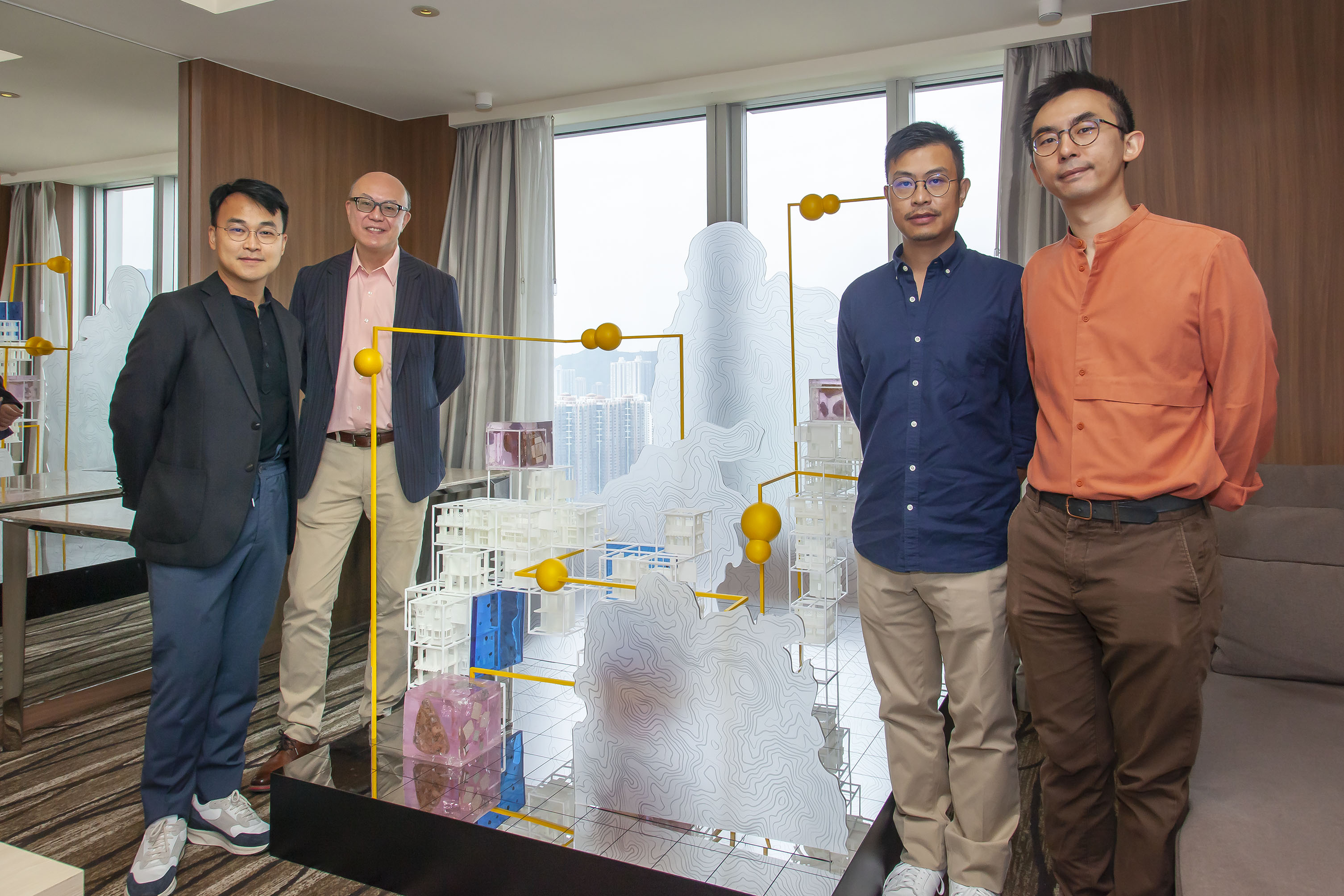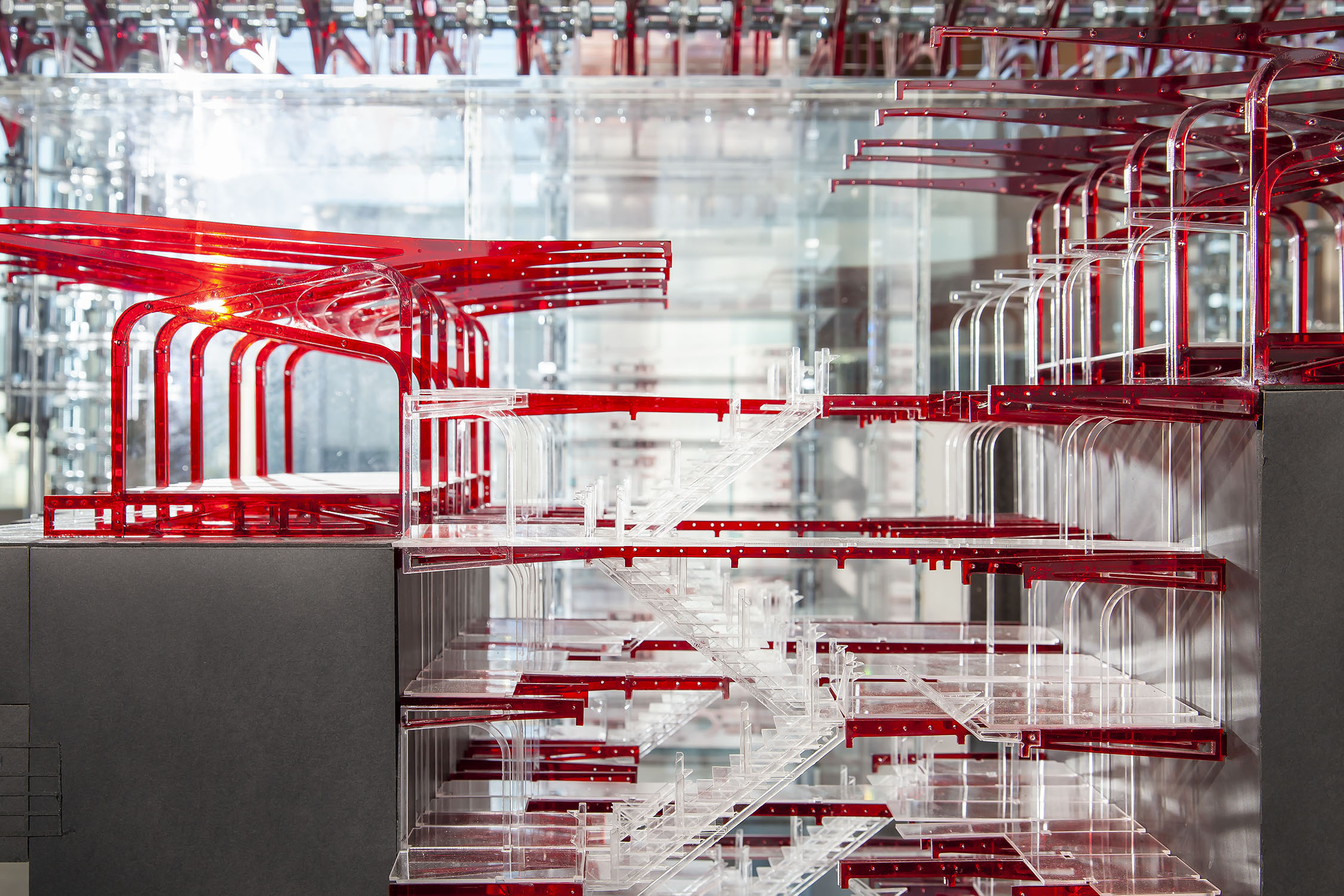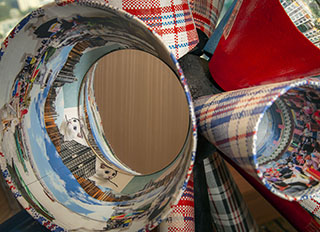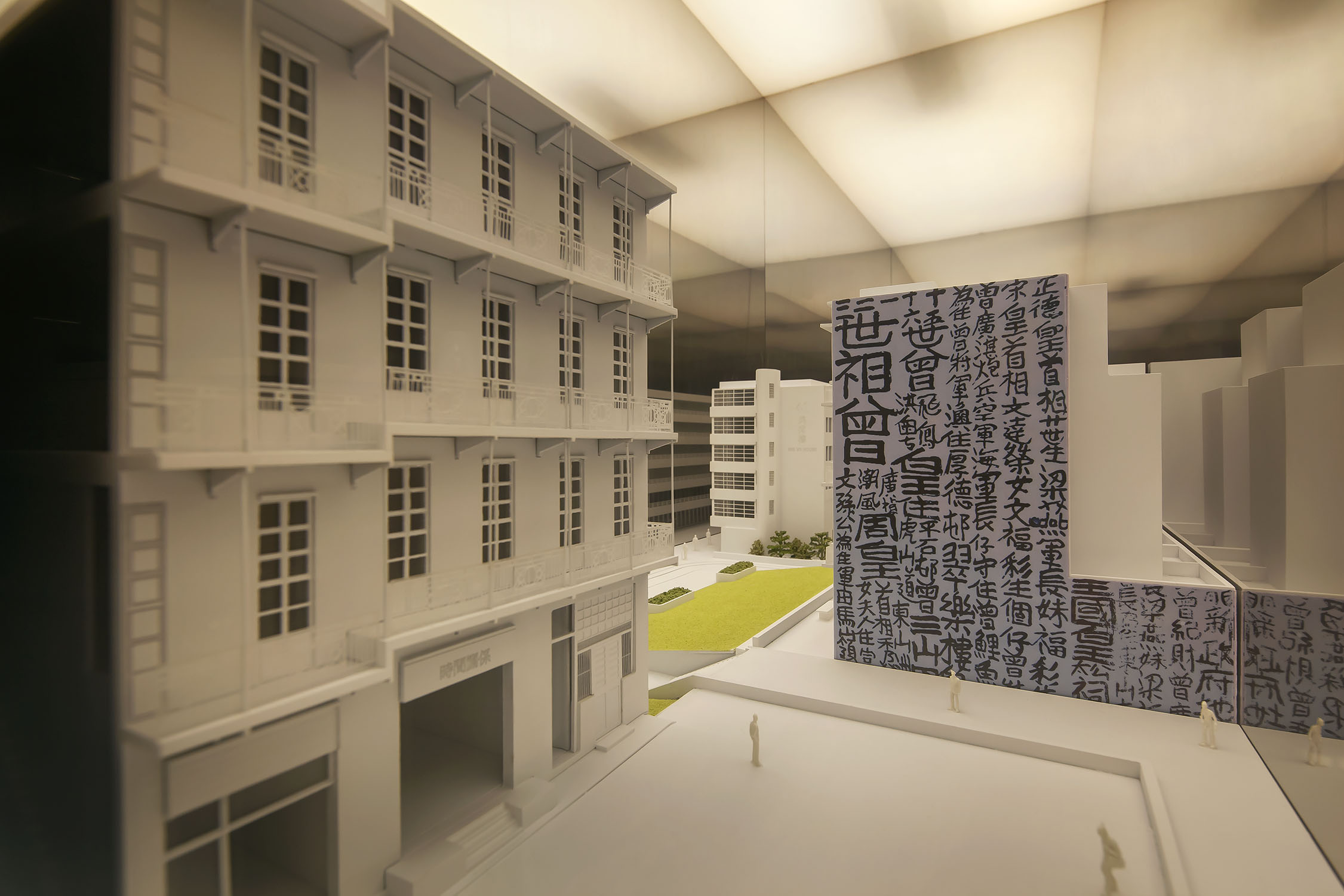Spotlight: Rethink over Liveability
11 January 2021
Hong Kong architects call for a rethink over redistributing land, people and the environment to achieve better liveability at the 17th Venice Biennale International Architecture Exhibition, which can be previewed online.
This year’s Hong Kong Collateral Event at the 17th Venice Biennale International Architecture Exhibition will highlight issues concerning the redistribution of land, people and the environment and explore ways to make Hong Kong a better place to live.
The Venice Biennale International Architecture Exhibition is a major event in the architecture industry, showcasing outstanding works of architects from all over the world and facilitating architectural cultural interaction. It is also regarded as the “hall of fame” for contemporary architectural art.
Taking part in this year’s Hong Kong Collateral Event is a record number of 54 companies and organisations, forming 21 exhibit groups. Each group is composed of young architects, entrepreneurial designers, artists, researchers, academics and those working for NGOs. They were given a task to propose innovative ideas centred on the theme of Redistribution: Land, People and Environment, and how to make the most of limited resources to make Hong Kong a more liveable city.
The Hong Kong Collateral Event is co-organised by the Hong Kong Institute of Architects Biennale Foundation and the Hong Kong Arts Development Council in partnership with the Hong Kong Institute of Architects (HKIA) and lead sponsor, Create Hong Kong of the HKSAR Government.
Owing to Covid-19, however, the event has been pushed back to later in 2021. Prior to the live event, a virtual exhibition is now being staged so that audiences can immerse themselves in the architecture as if they were “there”. In addition to the virtual exhibition, a series of monthly webinars started in August. This continuing series discusses various topics related to the pandemic, to living spaces and to other social issues with other renowned architects, exhibitors and guests.
An Institute of Transient
One exhibit, “An Institute of Transient”, emphasizes the fact that despite Hong Kong’s past success as an economic powerhouse, the city lacks an overall vision that encourages a culture to be subconsciously cultivated by its people and embodied in the built environment.
In order to sustain the cultural logic of the transient and allow social progress, a programme of re-organisation of servant space is required to regenerate new space, explained Benny Lee, Co-Founder of BREAD studio and curator of the event, during a special media preview of exhibits held in L’hotel Nina et Convention Centre earlier in October.
Collisions and Connections: Redistributive Design for Visionary Typologies
Designed by Savannah College of Art and Design and The Wharf Group, “Collisions and Connections: Redistributive Design for Visionary Typologies” was inspired by Hong Kong’s clustered verticality where environmental and agricultural initiatives develop. The installation resembles megastructures that combine the lessons of bamboo scaffolding, vernacular stilt houses and iconic rounded-corner tong laus, with hubs that offer the diversity of Hong Kong streets.
These collisions and connections generate visionary typologies for our future, said Donald Choi, Executive Director and CEO of Chinachem Group, also the Chief Curator of the event.
All exhibitors have addressed both the many challenges and opportunities Hong Kong faces today, and shared their thoughts on how to best use available land resources and take advantage of the Guangzhou-Hong Kong-Macao Greater Bay Area network to improve liveability, Choi added.
In addition, the teams have provided their creative opinions about the pressing problems surrounding Hong Kong’s ageing population, and possible global talent migration options aimed at increasing diversity and overall competitiveness.
Fluid, Tales of the City, Boxed in Life – Ephemeral Architecture
Paul Mui, Co-Founder of BREAD studio and another event curator, explains the story of “Fluid, Tales of the City, Boxed in Life – Ephemeral Architecture”, designed by Arielle Tse, Oval Partnership and Technological and Higher Education Institute of Hong Kong. The installation combines the three elements to form an ephemeral art to address the issue of people and environment in Hong Kong, he explained.
“The installation’s backdrop consists of light fabric and a sea of pink foam, signifying a solid, yet transient surrounding. The installation prompts the audience to imagine how people live, move and interact with our built and natural environment.”
Rediscovering Rural Sustainability
“Rediscovering Rural Sustainability” was designed by a group formed by HSBC, “On Earth” Art Project, Policy for Sustainability Lab, Centre for Civil and Society and Governance at the University of Hong Kong (HKU).
According to Yu Ka Sing, an exhibit Curator and Assistant Professor at the HKU, the installation was inspired by Lai Chi Wo, a traditional Hakka village located in a remote valley in Hong Kong. It explores the rural-urban and human-environment interconnection from four interactive perspectives. It highlights the importance of rural sustainability within the wider city context, and explains the significance of building collaborative sustainable communities for long-term sustainable living.
How Covid will reshape building design
The unprecedented Covid-19 pandemic has profoundly changed the way we work, live and entertain. White-collar workers have been given the option to do their jobs remotely. When stuck at home during city lockdowns, people rely on online shopping and home-delivery services for daily essentials and other purchases. All of these changes have created new habits. People’s sense of personal space and need for hygiene and sanitation has been radically altered.
Future architectural design and space planning will service these social demands, said Choi. “We will see blurred boundaries among shopping, leisure and living. Future shopping facilities will be more decentralised and integrated into our communities. Since working from home has become the new normal and is increasingly accepted by employers, future home design will take the ‘home office’ into consideration.”
It is already evident that viruses can spread through the air and drainage. This means that people spending more time indoors – even at home – might be at risk of exposure. It is also shown that viral contaminants can spread through water or sewage pipes.
To address these new concerns, Choi believes that future home design will promote natural ventilation and let in more fresh air, and that building drainage system design will be improved to prevent pathogens from spreading through the drainage system.
This year’s Hong Kong Collateral Event at the 17th Venice Biennale International Architecture Exhibition will highlight issues concerning the redistribution of land, people and the environment and explore ways to make Hong Kong a better place to live.
The Venice Biennale International Architecture Exhibition is a major event in the architecture industry, showcasing outstanding works of architects from all over the world and facilitating architectural cultural interaction. It is also regarded as the “hall of fame” for contemporary architectural art.
Taking part in this year’s Hong Kong Collateral Event is a record number of 54 companies and organisations, forming 21 exhibit groups. Each group is composed of young architects, entrepreneurial designers, artists, researchers, academics and those working for NGOs. They were given a task to propose innovative ideas centred on the theme of Redistribution: Land, People and Environment, and how to make the most of limited resources to make Hong Kong a more liveable city.
The Hong Kong Collateral Event is co-organised by the Hong Kong Institute of Architects Biennale Foundation and the Hong Kong Arts Development Council in partnership with the Hong Kong Institute of Architects (HKIA) and lead sponsor, Create Hong Kong of the HKSAR Government.
Owing to Covid-19, however, the event has been pushed back to later in 2021. Prior to the live event, a virtual exhibition is now being staged so that audiences can immerse themselves in the architecture as if they were “there”. In addition to the virtual exhibition, a series of monthly webinars started in August. This continuing series discusses various topics related to the pandemic, to living spaces and to other social issues with other renowned architects, exhibitors and guests.
An Institute of Transient
One exhibit, “An Institute of Transient”, emphasizes the fact that despite Hong Kong’s past success as an economic powerhouse, the city lacks an overall vision that encourages a culture to be subconsciously cultivated by its people and embodied in the built environment.
In order to sustain the cultural logic of the transient and allow social progress, a programme of re-organisation of servant space is required to regenerate new space, explained Benny Lee, Co-Founder of BREAD studio and curator of the event, during a special media preview of exhibits held in L’hotel Nina et Convention Centre earlier in October.
Collisions and Connections: Redistributive Design for Visionary Typologies
Designed by Savannah College of Art and Design and The Wharf Group, “Collisions and Connections: Redistributive Design for Visionary Typologies” was inspired by Hong Kong’s clustered verticality where environmental and agricultural initiatives develop. The installation resembles megastructures that combine the lessons of bamboo scaffolding, vernacular stilt houses and iconic rounded-corner tong laus, with hubs that offer the diversity of Hong Kong streets.
These collisions and connections generate visionary typologies for our future, said Donald Choi, Executive Director and CEO of Chinachem Group, also the Chief Curator of the event.
All exhibitors have addressed both the many challenges and opportunities Hong Kong faces today, and shared their thoughts on how to best use available land resources and take advantage of the Guangzhou-Hong Kong-Macao Greater Bay Area network to improve liveability, Choi added.
In addition, the teams have provided their creative opinions about the pressing problems surrounding Hong Kong’s ageing population, and possible global talent migration options aimed at increasing diversity and overall competitiveness.
Fluid, Tales of the City, Boxed in Life – Ephemeral Architecture
Paul Mui, Co-Founder of BREAD studio and another event curator, explains the story of “Fluid, Tales of the City, Boxed in Life – Ephemeral Architecture”, designed by Arielle Tse, Oval Partnership and Technological and Higher Education Institute of Hong Kong. The installation combines the three elements to form an ephemeral art to address the issue of people and environment in Hong Kong, he explained.
“The installation’s backdrop consists of light fabric and a sea of pink foam, signifying a solid, yet transient surrounding. The installation prompts the audience to imagine how people live, move and interact with our built and natural environment.”
Rediscovering Rural Sustainability
“Rediscovering Rural Sustainability” was designed by a group formed by HSBC, “On Earth” Art Project, Policy for Sustainability Lab, Centre for Civil and Society and Governance at the University of Hong Kong (HKU).
According to Yu Ka Sing, an exhibit Curator and Assistant Professor at the HKU, the installation was inspired by Lai Chi Wo, a traditional Hakka village located in a remote valley in Hong Kong. It explores the rural-urban and human-environment interconnection from four interactive perspectives. It highlights the importance of rural sustainability within the wider city context, and explains the significance of building collaborative sustainable communities for long-term sustainable living.
How Covid will reshape building design
The unprecedented Covid-19 pandemic has profoundly changed the way we work, live and entertain. White-collar workers have been given the option to do their jobs remotely. When stuck at home during city lockdowns, people rely on online shopping and home-delivery services for daily essentials and other purchases. All of these changes have created new habits. People’s sense of personal space and need for hygiene and sanitation has been radically altered.
Future architectural design and space planning will service these social demands, said Choi. “We will see blurred boundaries among shopping, leisure and living. Future shopping facilities will be more decentralised and integrated into our communities. Since working from home has become the new normal and is increasingly accepted by employers, future home design will take the ‘home office’ into consideration.”
It is already evident that viruses can spread through the air and drainage. This means that people spending more time indoors – even at home – might be at risk of exposure. It is also shown that viral contaminants can spread through water or sewage pipes.
To address these new concerns, Choi believes that future home design will promote natural ventilation and let in more fresh air, and that building drainage system design will be improved to prevent pathogens from spreading through the drainage system.

From left to right: Yu Ka Sing, Curator and Assistant Professor at the HKU; Donald Choi, Executive Director and CEO, Chinachem Group; Paul Mui, Co-Founder of BREAD studio; and Benny Lee, Co-Founder of BREAD studio.

Exhibit: “An Institute of Transient”

Exhibit: “18 Portals”

Exhibit:“ Past. Present. Future.”
